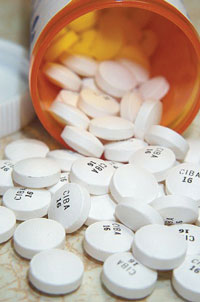 When the American Heart Association (AHA) talks, people listen — even when the meaning gets lost in translation.
When the American Heart Association (AHA) talks, people listen — even when the meaning gets lost in translation.
That happened this spring when the AHA spoke up about the cardiovascular risks associated with certain medications used to treat attention deficit/hyperactivity disorder (ADHD) in children. It was widely reported that the AHA recommended children should be screened for heart problems with an electrocardiogram (ECG) when receiving stimulants to treat ADHD.
Requests for ECGs from concerned families and their physicians soon soared, as did protests by many caregivers that the AHA was overreacting.
The fact is, the AHA statement did discuss the advisability of obtaining ECGs from ADHD patients. However, the AHA never intended to send the message that ECGs ought to be mandatory. A few weeks after the original statement, the AHA released a clarification. The AHA’s position is that it is “reasonable for a physician to consider” obtaining an ECG for a child being treated with ADHD, but this should be done at the physician’s discretion and is “not mandatory.”
“Our recommendations have not changed,” says Rose Marie Robertson, chief science officer for the AHA. “We have modified some language errors … to assure that our original intent is clear.”
As originally reported, the AHA’s statement caught many caregivers off-guard. However, once clarified, the statement simply underscored what is already known about the potential cardiac risks for ADHD patients, says Dr. Chris Varley, clinical program director of inpatient psychiatry at Children’s Hospital and Regional Medical Center in Seattle.
“It was a reminder, if you will, to pay attention to these issues,” says Varley.
At Children’s, Varley served on a committee that reviewed the AHA statement and decided against expanding the use of ECGs to screen ADHD patients. “I personally don’t think we know enough at this time to say that this is something that would be incredibly useful,” he says.
Why meds are a concern
The basis for concern about ADHD medications is twofold. First, stimulants can increase blood pressure and pulse rates. Second, children born with some heart conditions are more prone to experience ADHD.
The fear is that stimulants could cause cardiovascular complications and even sudden death in children with heart problems who take ADHD meds.
Although there have been no clinical studies to scientifically connect the dots, there have been sporadic reports of sudden cardiac death (SCD) among children taking ADHD medications. “We’re dealing with an extremely rare occurrence that’s tough to investigate,” says Dr. Peter Hesslein, a pediatric cardiologist at Swedish Medical Center in Seattle.
About 2.5 million American children take medication for ADHD. The Food and Drug Administration received reports of 19 sudden cardiac deaths among children taking ADHD meds between 1999 and 2003, prompting a 2006 decision to require warning labels on stimulants used to treat ADHD.
The question is whether ADHD medications contribute to SCD or whether underlying heart problems alone are to blame. “It’s impossible to differentiate,” Varley says.
The AHA urges further study to answer that question and suggests creating an SCD registry to collect a more comprehensive set of data about each death.
The challenge: looking for answers
However, there are, numerous challenges involved in studying the relationship between ADHD medications and SCD. They include the variety of medications used to treat ADHD, the range of cardiac diagnoses involved and the number of patients necessary to produce statistically valid results.
Obtaining ECGs from patients who already have been diagnosed with heart problems is a moot point. An ECG, which records the electrical activity of the heart to detect weaknesses in various parts of the heart muscle, has most likely already been obtained from those patients and would not reveal anything doctors don’t already know.
What about children whose potential heart problems are unknown? The standard practice is to screen ADHD patients for symptoms and family history, and monitor pulse rates and blood pressure, Varley says. If a cause for concern emerges, referral to a cardiologist for an ECG and/or other tests may be advisable.
Just because a heart condition is detected doesn’t mean a child can’t take ADHD meds. “Very few of our patients aren’t cleared to use ADHD medications,” Hesslein says.
Although ECGs are relatively cheap and easy to obtain, there’s a downside to performing them on a mass scale, says Hesslein. Among previously undiagnosed children, roughly 10 percent of ECGs fall outside normal levels, but only a fraction of those children turn out to have heart conditions. Mass screening would cause a lot of needless anxiety and unnecessary follow-up, he says.
Despite the initial confusion caused by the AHA statement, Varley believes it will help people remain alert to whatever new information emerges in the future. “It is important for people to be aware of [the possible risks],” he says. “I wouldn’t say this is a moving target, but there will be continued discussion.”
Brad Broberg is a freelance writer and former newspaper reporter/editor who lives in Federal Way with his 12-year-old daughter, Rachel.











